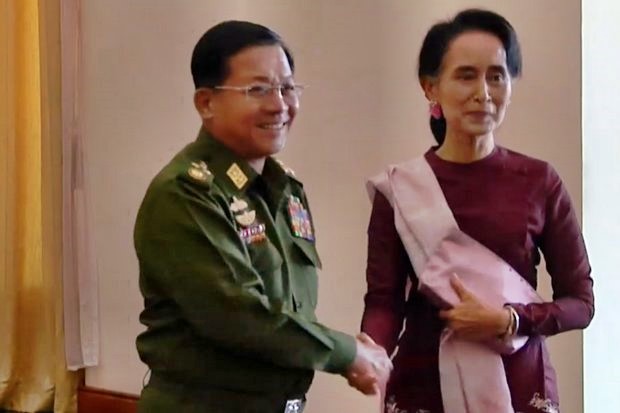
The friends of Aung San Suu Kyi continue to desert her and to criticise her government's policies. The 10-man international advisory board she appointed to try to smooth out the Rohingya crisis has dropped to eight. The two who quit have both left in bitter disappointment over Myanmar policy. They believe they were misled by Ms Suu Kyi and her government. In truth, the Rohingya crisis is growing instead of diminishing, as Myanmar's government and army continue to mismanage and harm the country.
Last week, Kobsak Chutikul announced he had had enough, and quit the grandly named Advisory Board for the Committee for Implementation of the Recommendations on Rakhine State. Because of his personal reputation and international standing, Mr Kobsak was a key member of that board. He has been an ambassador multiple times, a member of parliament and an adviser to the prime minister. He is secretary-general of the highly influential Asian Peace and Reconciliation Council. His principled resignation from Ms Suu Kyi's board will only further cement respect he has earned at home and abroad.
His stated reasons for walking away from the Myanmar position were similar to those of an earlier resignee, American Bill Richardson. A long-time friend and booster of the Myanmar leader, he broke with her over the advisory board, saying he believe members were being used as pawns to justify Myanmar army atrocities and even genocide against the Rohingya. Mr Kobsak said after just two meetings in five months, the board was becoming part of the problem, instead of contributing to a solution to the Rohingya crisis.
Mr Richardson said the board was a whitewash. Mr Kobsak said it "lulls authorities into thinking they have done enough" merely by appointing a few foreign friends of Ms Suu Kyi. But the board has no office, no secretariat, no budget. It also has no backing. While the board is expected to recommend ways to implement repatriation and reconciliation for Rohingya, Ms Suu Kyi herself not only refuses to back this goal, but has openly approved of army atrocities and forced exile that have been described by the top levels of the United Nations as ethnic cleansing, showing "the hallmarks of genocide".
A stunning report with academic credibility emerged last week. Based on hundreds of interviews with directly involved individuals, the group Fortify Rights concluded the tatmadaw, Myanmar's military, specifically acted on a plan based on genocide of the Rohingya. The report details methods that ranged from arming and training Buddhist villagers against Muslims to turning off all international aid to the impoverished villages where Rohingya lived.
- Reporter's bombshell: Myanmar police 'planted evidence'
The campaign, openly supported by Ms Suu Kyi but ignored by the surviving eight advisory board members, led to the flight of 700,000 Rohingya to next-door Bangladesh. More than 8,000 of the Muslims were killed or died violently by the army. The new study says the cleansing campaign included 27 tatmadaw battalions of about 11,000 troops, along with 900 personnel from three combat police battalions.
The Rohingya survivors are living in squalid refugee camps inside Bangladesh, which is in no position to provide meaningful aid. The refugees are persistently threatened by monsoon flooding and disease.
Thailand's former foreign minister Surakiart Sathirathai continues to serve as chairman of Ms Suu Kyi's advisory board. Since his high-profile appointment at the beginning of the year, he has been silent. This is unfortunate. Thailand in particular because of the common border, and the other eight Asean members in general are failing to take necessary steps to deal with a major threat to the group's credibility.
Human trafficking of Rohingya migrants through and around Thailand to Malaysia has resumed. The 700,000 Rohingya refugees are always poised on the verge of a natural calamity. The Suu Kyi government continues to employ barriers that make the repatriation of Rohingya impossible. Mr Kobsak has served direct notice of the seriousness of this situation, and Asean should act immediately instead of waiting for disaster.
